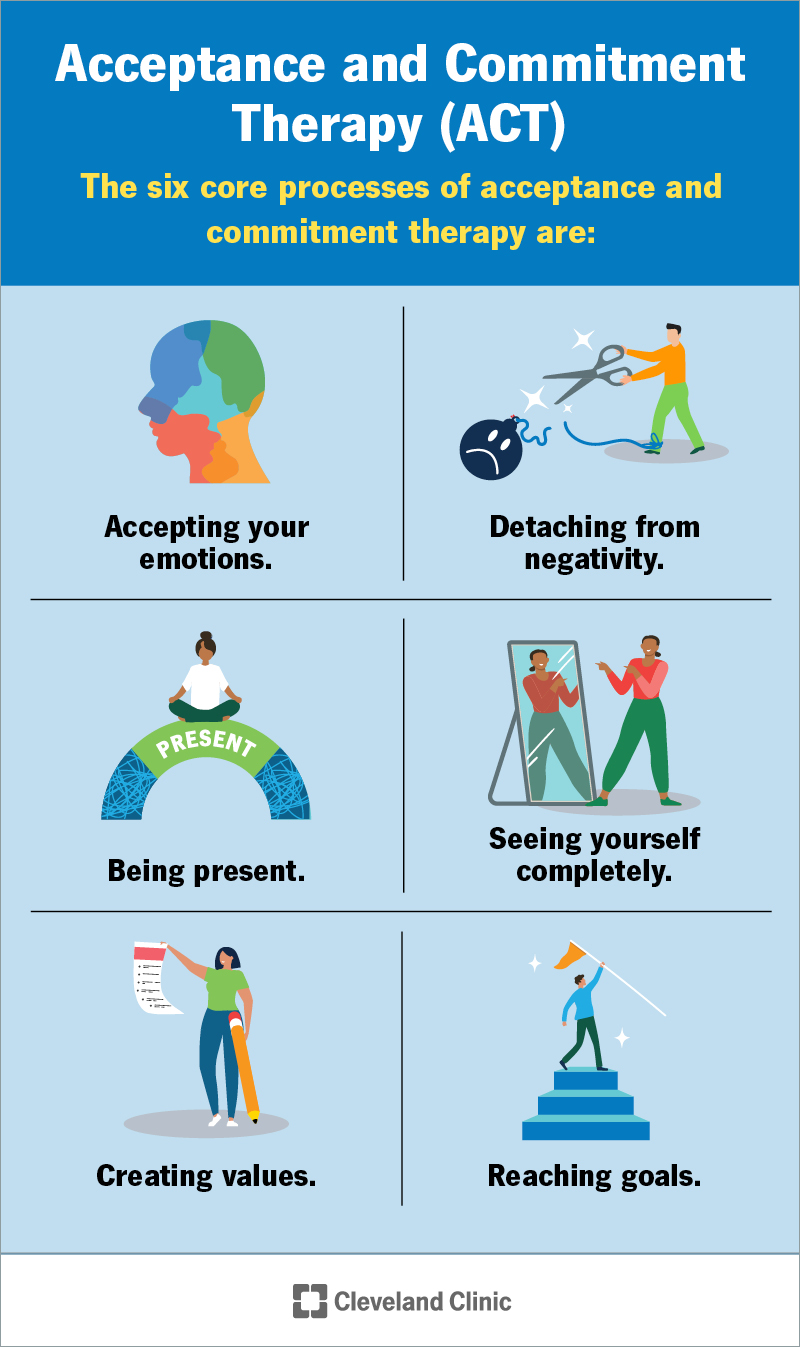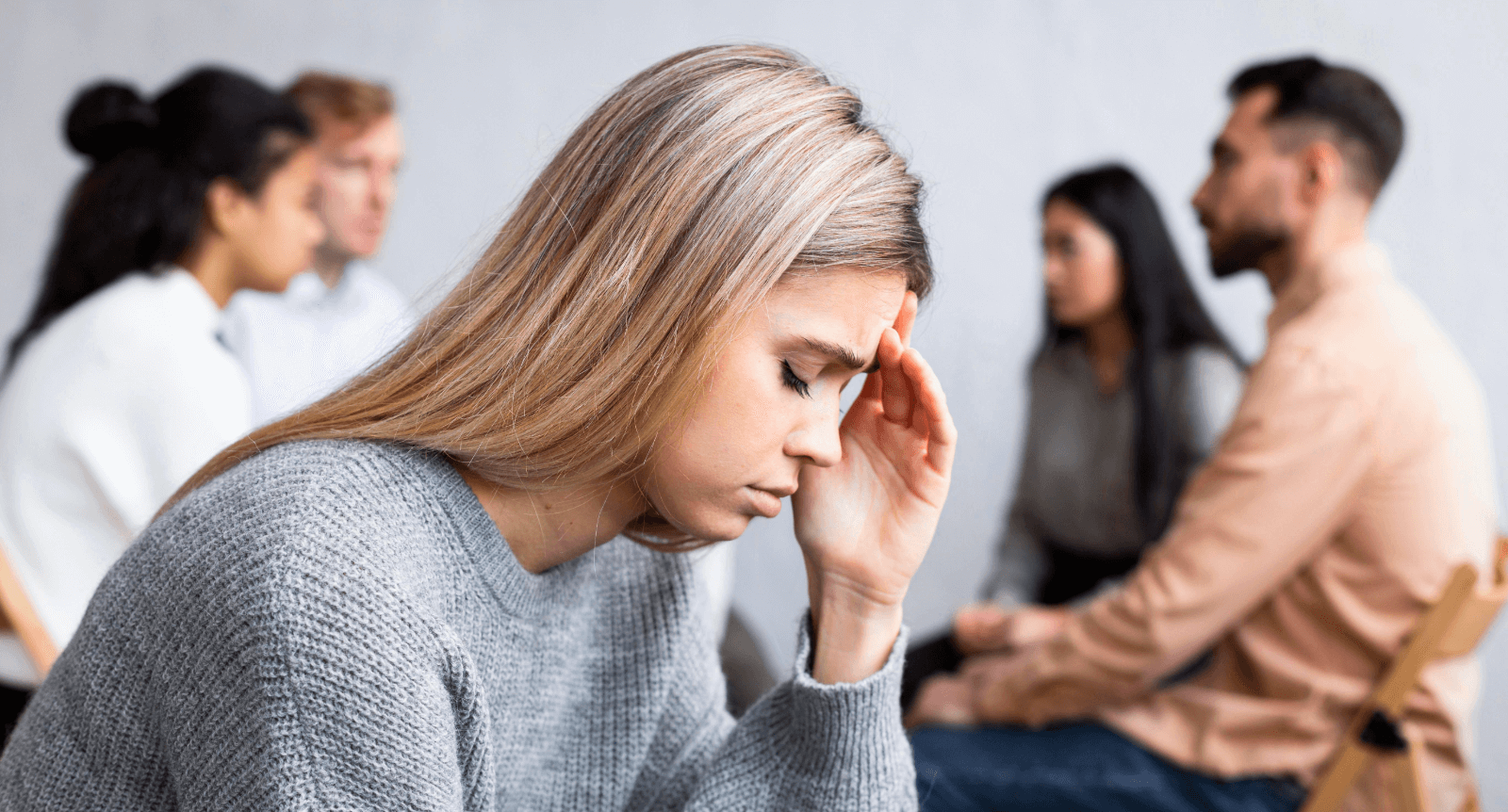Checking Out Various Strategies in Therapy for Anxiety Disorder for Enduring Adjustment
When taking on stress and anxiety conditions, it's necessary to check out a range of therapy techniques. Each method offers special insights and tools to help you manage your signs successfully. You may find that combining techniques can generate the finest outcomes. However, recognizing the nuances of these methods is key to cultivating enduring adjustment. What happens if the right combination could launch a new level of psychological health for you?
Recognizing Anxiousness Problems: A Quick Introduction
Anxiousness problems, which impact countless individuals worldwide, can considerably impact day-to-day live. You might experience frustrating sensations of fear or fret that seem unmanageable. These sensations can cause physical signs and symptoms like an auto racing heart, sweating, and even lightheadedness. Common kinds of anxiety problems consist of generalized anxiousness problem, panic attack, and social stress and anxiety condition. Each has special signs, yet they all share a propensity to disrupt your regular and relationships.Understanding the origin of your stress and anxiety is vital. It might stem from genetics, brain chemistry, or life experiences. Recognizing your triggers can assist you handle your actions much better. It's important to bear in mind that you're not alone in this battle. Many individuals encounter similar obstacles, and seeking assistance is a solid action towards feeling better. By finding out about anxiousness conditions, you're already on the path to understanding and handling your problem better.
Cognitive-Behavioral Treatment: Testing Negative Thought Patterns

Determining Unfavorable Thought Triggers
When you encounter minutes of distress, acknowledging the particular triggers behind your unfavorable ideas can be necessary in taking care of anxiety. Begin by focusing on circumstances that prompt sensations of concern or anxiety. Is it a congested room, a future deadline, or a discussion with particular people? Write down these instances in a journal. This will certainly help you recognize patterns in your thinking. Notification physical feelings that accompany your negative ideas, like a racing heart or tightness in your upper body. By pinpointing these triggers, you gain understanding right into what's fueling your anxiousness. Recognizing these links is the very first step in testing those ideas and inevitably regaining control over your psychological responses.

Replacing Thoughts With Positives
Testing negative thought patterns is an important action in transforming your frame of mind and decreasing stress and anxiety. You may commonly locate on your own trapped in cycles of insecurity or catastrophic thinking. As opposed to letting these ideas determine your sensations, practice changing them with reasonable choices or favorable affirmations. For example, when you think, "I can't handle this," shift it to, "I can take care of challenges one step at a time (Counseling services for anxiety)." This simple change can substantially impact your emotion. Frequently recognizing and countering these adverse thoughts assists produce a healthier interior discussion. Bear in mind, it takes some time and initiative, yet consistently exercising this strategy can bring about lasting modification, equipping you to encounter stress and anxiety with renewed self-confidence and resilience
Building Coping Methods Together
Changing unfavorable thoughts is just the beginning of handling anxiety efficiently. To develop lasting adjustment, you require to build coping strategies that encourage you. Cognitive-Behavioral Therapy (CBT) helps you recognize and challenge those purposeless idea patterns. Together, you and your therapist can discover just how these thoughts effect your feelings and behaviors.Start by establishing functional strategies, like journaling or mindfulness exercises, that allow you to challenge anxiousness head-on. When you encounter your anxieties slowly, you'll find out to respond in different ways.

Mindfulness and Acceptance-Based Approaches: Cultivating Present-Moment Understanding
As you navigate the intricacies of anxiousness, integrating mindfulness and acceptance-based techniques can considerably improve your ability to cultivate present-moment understanding. By focusing on the present moment, you'll find that you can observe your ideas and feelings without judgment. This practice aids you acknowledge your stress and anxiety without feeling overwhelmed by it.Engaging in mindfulness workouts, such as deep breathing, body scans, or directed meditations, allows you to ground yourself in your present experience. Acceptance-based techniques urge you to embrace your emotions as opposed to battle versus them. They lose their power over you.Incorporating these practices into your day-to-day regimen can change how you respond to stress and anxiety when you accept your feelings. You'll establish strength and learn to navigate stressful scenarios with greater ease. Ultimately, cultivating present-moment recognition lays the foundation for enduring modification, equipping you to lead a much more satisfying life.
Exposure Therapy: Facing Worries Slowly
Exposure therapy helps you face your concerns in a progressive method, making it less frustrating. You'll find out strategies to deal with anxiety-provoking circumstances detailed, while likewise constructing coping approaches to handle your responses. This strategy encourages you to take control and minimize anxiousness over time.
Gradual Exposure Techniques
When encountering anxiousness, progressively facing your concerns can be a powerful way to regain control. This strategy, called gradual direct exposure, includes slowly exposing on your own to the situations or objects that trigger your stress and anxiety. Begin with much less daunting scenarios and progressively work your way as much as even more difficult ones. For example, if you hesitate of public talking, you might start by talking in front of a mirror, after that proceed to sharing ideas with a close friend, and at some point attend to a tiny group. Each step assists desensitize you to the anxiety, developing your self-confidence in time. Bear in mind, it's vital to speed on your own and celebrate little triumphes as you move via this procedure, strengthening your capacity to take care of anxiety successfully.
Structure Coping Approaches
Building effective coping techniques is essential for handling anxiousness, particularly as you challenge your anxieties gradually. One powerful method is direct exposure treatment, where you begin by facing your fears in a controlled way. Start with much less frightening scenarios and slowly function your way up to more challenging scenarios. This gradual direct exposure assists desensitize you to anxiety sets off, making them less overwhelming.Incorporate relaxation strategies, such as deep breathing or mindfulness, to relax your mind throughout exposure. Track your development, celebrating tiny victories along the way to boost your confidence. Remember, it's all right to take your time; the goal isn't perfection but stable enhancement. By developing these methods, you'll encourage yourself to navigate anxiety and embrace life a lot more fully.
Psychodynamic Therapy: Revealing Source of Stress And Anxiety
Psychodynamic treatment checks out the unconscious mind, exposing the origin triggers of your stress and anxiety - Counseling services for anxiety. By analyzing your ideas, feelings, and past experiences, this strategy aids you uncover underlying problems and unsettled issues that might contribute to your existing stress and anxiety. You'll collaborate with a specialist to website explore childhood experiences, partnerships, and emotional patterns that form your reactions today.As you gain insight right into these deeper layers of your mind, you'll begin to identify how previous events affect your existing habits. This understanding can bring about catharsis, enabling you to process emotions you may have suppressed.Through the therapeutic relationship, you can additionally identify defense reaction that may have created with time, using a more clear path to alter. Inevitably, psychodynamic therapy equips you with the tools to address your anxiety at its core, promoting long-term improvement in your emotional wellness
All Natural and integrative Techniques: Integrating Strategies for Greater Efficacy
Integrating various restorative strategies can enhance your journey toward handling anxiousness more properly. By combining elements from cognitive-behavioral treatment, mindfulness techniques, and holistic approaches, you can produce a tailored strategy that addresses your one-of-a-kind needs. You may make use of cognitive-behavioral techniques to challenge negative idea patterns while incorporating mindfulness workouts to ground on your own in the present moment.Additionally, discovering alternative methods such as yoga or reflection can promote leisure and reduce stress and anxiety signs. This blend allows you to create greater self-awareness and resilience.Experimenting with these varied techniques can help you uncover what reverberates most with you. Remember, it's about finding a harmony that works, as opposed to staying with a solitary technique. This integrative approach not just uses instant alleviation yet additionally cultivates lasting abilities for taking care of anxiety, encouraging you to recover control over your life.
The Duty of Support Systems: Building Resilience Via Connection
While it could seem that taking care of anxiety is a singular journey, having a solid support system can play a vital duty in your durability. Bordering on your own with compassionate pals, family members, or support system creates a risk-free room where you can openly share your feelings and experiences. When you attach with others, you advise on your own that you're not the only one in this struggle.These connections use motivation and can offer functional coping strategies that have worked for others. It's also a possibility to get viewpoint; pals can help you see scenarios differently, reducing sensations of isolation.Moreover, psychological support cultivates a feeling of belonging, which can substantially ease stress and anxiety signs. By leaning on your assistance system, you can construct resilience and deal with obstacles better. Keep in mind, reaching out for aid is an indicator of toughness, and it can make all the distinction in your trip toward managing anxiousness.
Regularly Asked Inquiries
What Are the Usual Signs of Stress And Anxiety Conditions?
You could experience restlessness, tiredness, trouble concentrating, irritability, muscular tissue stress, and rest disturbances. Physical symptoms can consist of fast heartbeat, sweating, and trembling. Identifying these indications early can help you look for proper assistance and therapy.

How Lengthy Does Treatment Commonly Last for Stress And Anxiety Disorders?
Treatment for stress and anxiety problems normally lasts anywhere from a few weeks to a number of months. It really relies on your individual demands, development, and the techniques your specialist uses to assist you manage your anxiousness successfully.
Can Medicine Be Used Along With Therapy for Stress and anxiety?
Yes, medication can most definitely be used alongside therapy for anxiousness. Combining both strategies commonly improves treatment performance, assisting you manage signs while discovering underlying problems through therapy. Constantly consult your health care supplier for customized suggestions.
Are There Self-Help Strategies for Handling Anxiousness?
Yes, there are several self-help methods for managing stress and anxiety. You can practice mindfulness, participate in routine workout, preserve a balanced diet plan, develop a regular, and make use of deep breathing techniques to help lower stress and anxiety signs effectively.
Just how Do I Know if I Required Professional Assistance for Stress And Anxiety?
You must take into consideration looking for specialist aid for stress and anxiety if it interferes with day-to-day live, creates substantial distress, or if self-help strategies aren't working. Count on your impulses; connecting can result in better coping skills and support. Usual types of anxiety disorders include generalized stress and anxiety disorder, panic condition, and social stress and anxiety condition. When you experience moments of distress, acknowledging the particular triggers behind your adverse thoughts can be important in handling stress and anxiety. Changing adverse ideas is just the beginning of managing anxiousness effectively. By analyzing your ideas, feelings, and previous experiences, this method helps you uncover underlying problems and unsettled issues that might contribute to your existing anxiousness. It's additionally a possibility to gain viewpoint; close friends can assist you see situations in different ways, reducing sensations of isolation (Counseling services for anxiety).Moreover, psychological assistance fosters a sense of belonging, which can greatly alleviate anxiousness symptoms